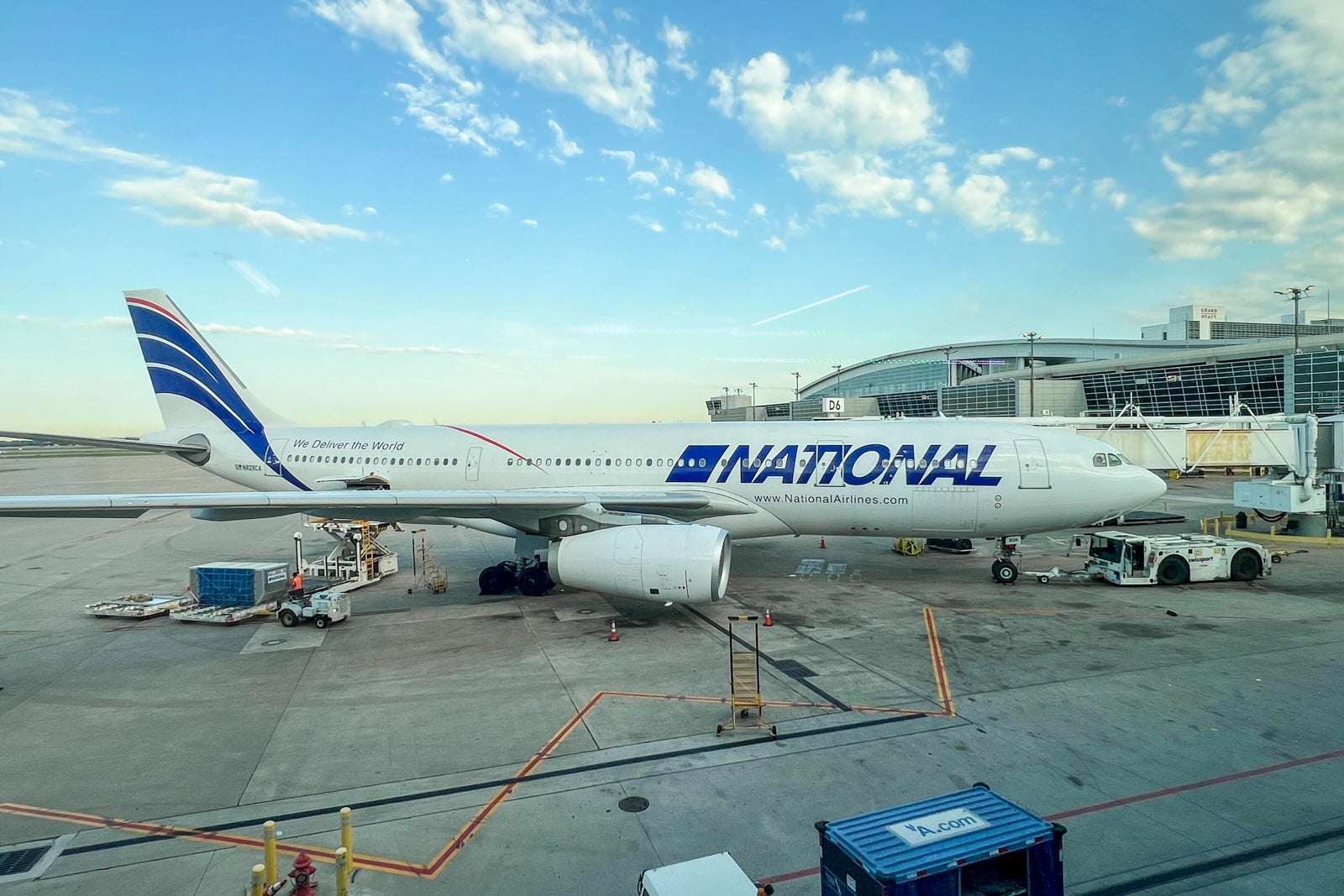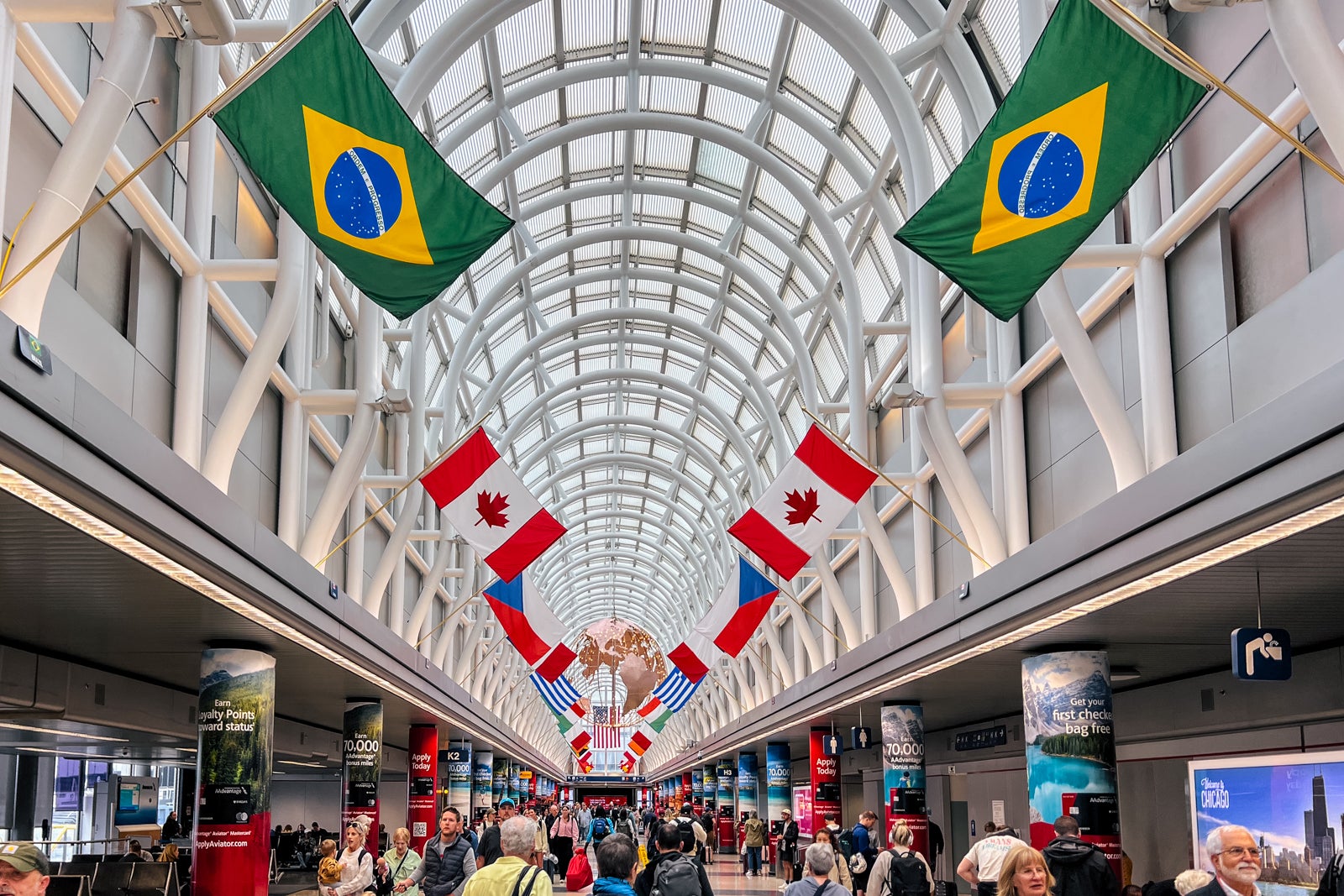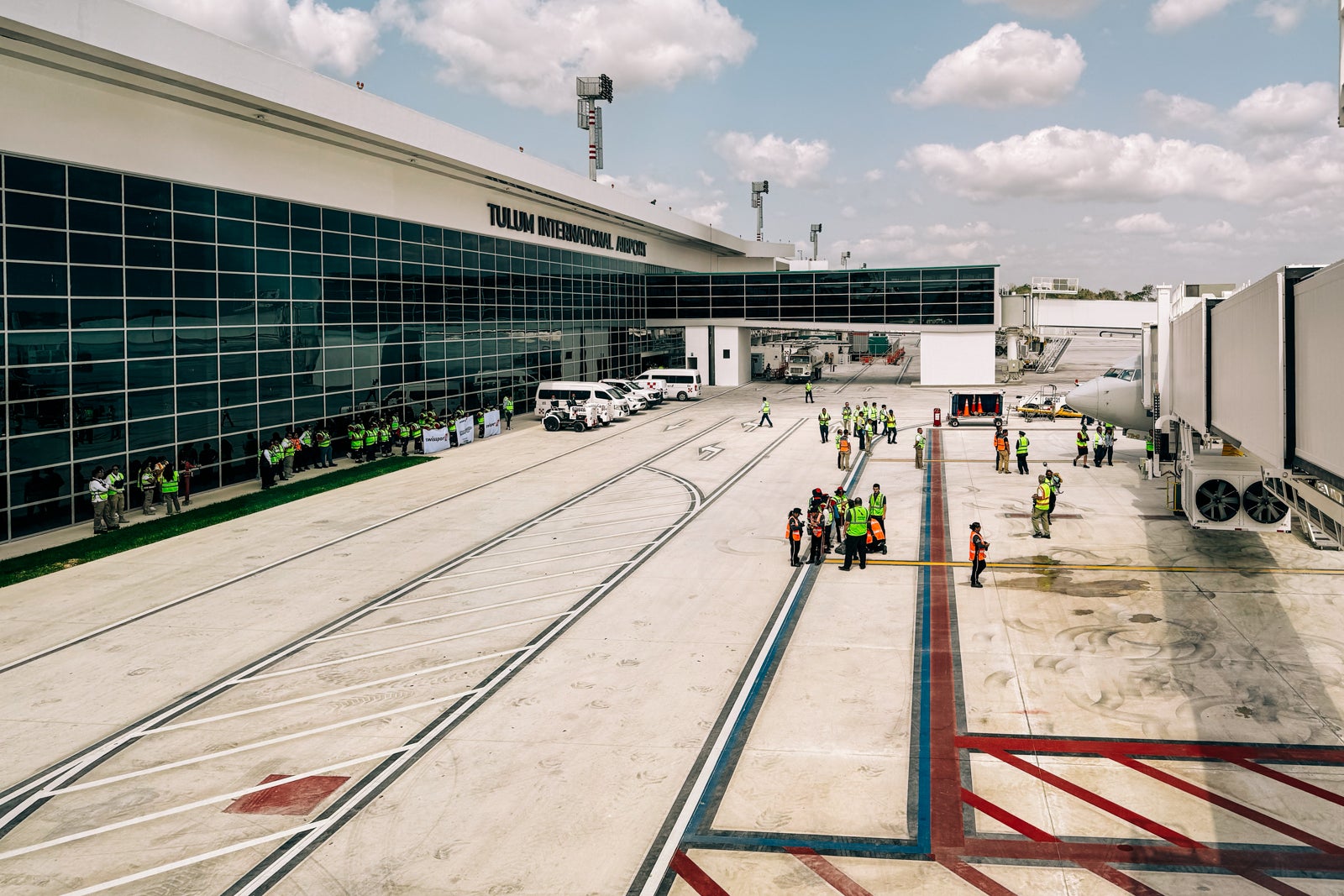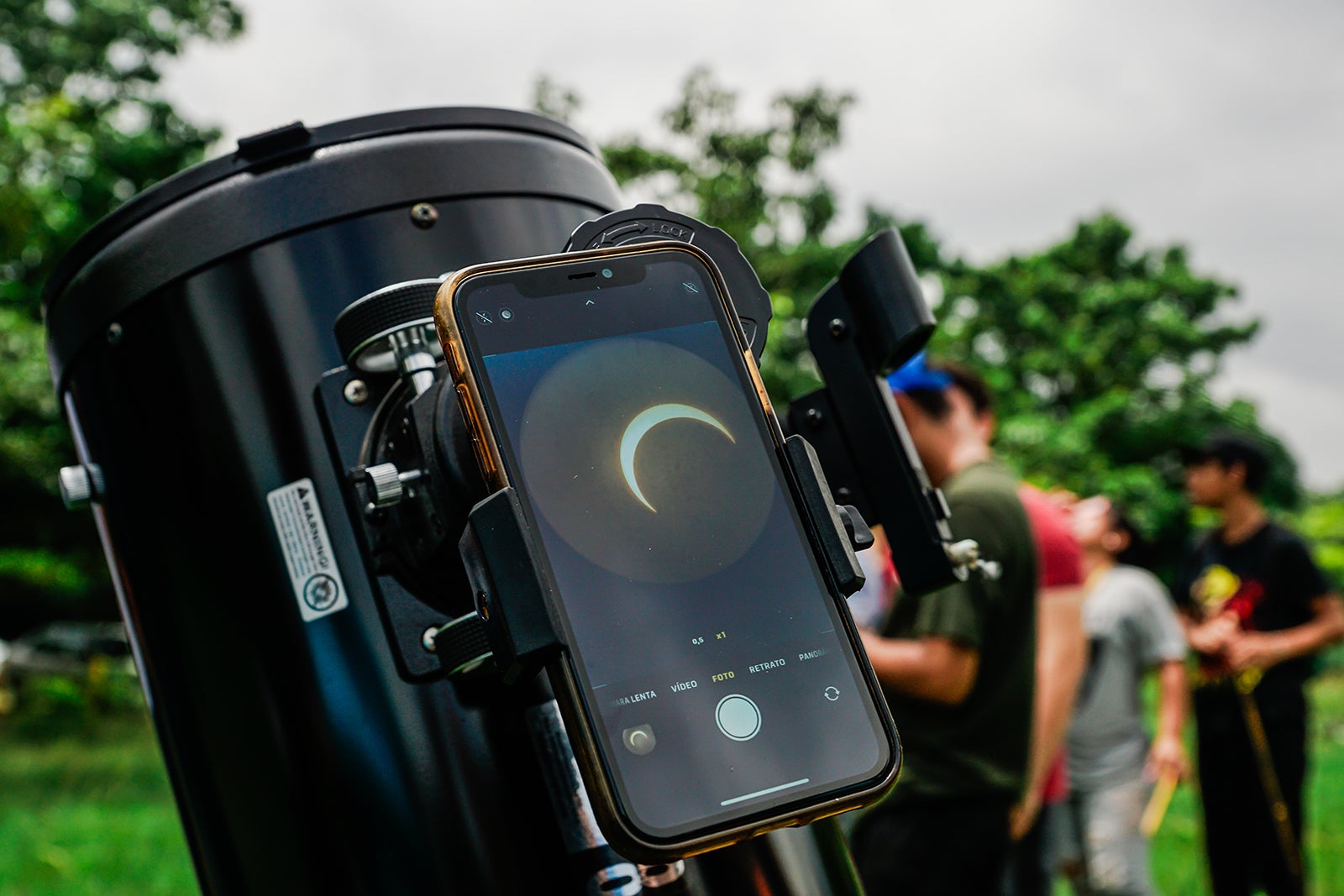Despite what you’ll have heard, Americans are still traveling … and plan on spending extra on journey. That’s the phrase from the newest spherical of polling performed by The Harris Poll for TPG.
After warnings of softening demand from airways like American Airlines, Delta Air Lines and Southwest Airlines, we puzzled if the bullish journey sentiment we discovered earlier this yr would maintain up in our most up-to-date polling. It did.
Conventional knowledge would maintain that journey is among the first issues to get reduce throughout economic downturns as a result of it is a discretionary expense. But the numbers to date do not bear that out. As my colleague Sean Cudahy reported, in each March and April, the Transportation Security Administration screened virtually as many passengers because it did throughout these months of 2024.
Still, there are some warning indicators on the horizon with regards to journey sentiment, together with the truth that most Americans say present economic situations have them rethinking their journey plans in some kind or style.
Most Americans are planning to journey the identical or greater than final yr
Our new survey discovered that greater than three in 4 Americans plan to journey in 2025, which is sort of an identical to their journey plans captured earlier within the yr. We additionally discovered that about one-third of Americans intend to journey extra and/or enhance their spending on journey, suggesting there’s still a strong curiosity in journey despite the present economic and political surroundings.
The new TPG/Harris Poll survey discovered:
- More than three in 4 Americans (77%) plan to journey in 2025 (in keeping with February’s outcomes of 76%).
- Seven in 10 Americans (70%) intend to journey domestically, and 28% plan to journey internationally.
- Roughly one in three Americans (32%) plan to journey extra in 2025 than they did final yr (much like February’s outcomes of 35%), whereas 42% plan to journey about the identical and simply 9% count on to journey lower than in 2024.
- About one in three Americans (34%) plan to spend extra on journey in 2025 than they did final yr, whereas 37% will spend about the identical and simply 10% say they’ll spend much less on journey this yr.
Overall, the TPG/Harris Poll survey suggests males are extra possible than ladies to plan journey this yr (80% versus 73%) and to say they plan to spend extra on journey than final yr (41% versus 27%).
There are some warning indicators on traveler sentiment
But it is not all excellent news with regards to traveler sentiment — there are some clouds on the horizon.

Daily Newsletter
Reward your inbox with the TPG Daily e-newsletter
Join over 700,000 readers for breaking information, in-depth guides and unique offers from TPG’s specialists
About one in 10 Americans say they’ll journey much less (9%) or spend much less on journey than they did final yr (10%). Why? Among those that are decreasing their spending, monetary considerations high the record, with 61% citing funds.
Other causes amongst those that plan to journey much less or spend much less on journey this yr:
- They traveled extra final yr than they often do: 16%
- Safety considerations, comparable to crime and political unrest: 14%
- Health causes: 14%
- Personal circumstances: 11%
- Weather considerations: 8%
- Work obligations: 8%
- Other causes: 15%
According to the survey knowledge compiled by The Harris Poll, “The current economic situation, including tariffs and inflation, has influenced the travel plans of more than half of Americans this year.”
Related: Need to know: The 6 high journey traits for 2025
More than half of Americans say they’ll cut back their journey frequency or shorten their journey durations on account of economic considerations. Others have thought-about, or are contemplating, suspending or canceling their journey plans altogether or altering their locations.
- More than half of Americans (52%) say the present financial system (e.g., tariffs, inflation/greater costs, and so on.) has affected their journey plans this yr.
- About one in 5 Americans have/will journey lower than beforehand deliberate (20%) or have/will shorten the period of their journeys (19%) because of the present financial system.
- About one in seven Americans say they’ve postponed or canceled journey plans or will accomplish that (14%), and the identical proportion have modified their journey locations because of the present financial system.
- Roughly one in 4 vacationers have traveled/will journey lower than beforehand deliberate (26%) or have shortened/will shorten the period of their journeys (25%) because of the present financial system.
US overseas coverage is having an impression
A shifting U.S. overseas coverage image can be affecting journey plans for Americans. Nearly one in three Americans report that shifts in U.S. overseas coverage have affected their worldwide journey plans, with 16% contemplating suspending or canceling worldwide journey (or having already accomplished so).
- Three in 10 Americans (30%) point out that altering U.S. overseas coverage has affected their worldwide journey plans this yr.
- Nearly one in eight Americans (16%) say they’ve postponed or canceled/will postpone or cancel worldwide journey plans.
- About 7% say they’ve modified/will change their worldwide locations, have shortened/will shorten the period of worldwide journeys or have traveled/will journey internationally lower than beforehand deliberate.
Among these truly planning to journey overseas, the numbers are steeper: More than half really feel impacted by overseas coverage modifications.
- More than half (58%) of worldwide vacationers (i.e., those that plan to journey internationally in 2025) say that altering U.S. overseas coverage has affected their worldwide journey plans this yr.
- About one in 4 worldwide vacationers say they’ve modified/will change their worldwide journey locations (25%), have shortened/will shorten the period of their worldwide journeys (24%) or anticipate doing/will do much less worldwide journey than beforehand deliberate (24%) on account of altering U.S. overseas coverage.
- Roughly one in 5 worldwide vacationers (22%) say they’ve postponed or canceled/will postpone or cancel worldwide journey plans because of the altering U.S. overseas coverage.
Why any slowdown in journey bookings may very well be excellent news for costs
Despite journey sentiment holding up in our findings, actual demand has certainly fallen for flights to date in 2025. But that is not essentially unhealthy information from a passenger’s viewpoint. In truth, should you’re one of many 32% of Americans who plan to journey extra this yr, this might work to your benefit.
A latest report from journey knowledge firm OAG suggests airways are still including capability (extra flights) throughout the U.S. and to locations like Europe.
“Despite a backdrop of supply chain problems and some economic uncertainty, total airline capacity (both domestic and international) in North America is up 2% this summer vs summer 2024,” the report says.
According to Cirium, one other aviation knowledge firm, the variety of seats to Europe from the U.S. this summer time is up 3.9% yr over yr.
Indeed, we’re already seeing loads of deal alerts for flights to Europe this summer time for beneath $500. Just one instance? This 30% off sale from the low cost provider Play has flights from U.S. gateways for as little as $326 round-trip. Or, how about an American Airlines flight in enterprise class from Chicago to London for simply 55,000 Alaska Airlines Mileage Plan miles?
If we really see a sustained discount in demand, offers like that would change into much more plentiful.
Related studying:
Survey methodology: This survey was performed on-line throughout the United States by The Harris Poll on behalf of The Points Guy from May 15 to 19, 2025, amongst 2,077 adults ages 18-plus. The sampling precision of Harris on-line polls is measured through the use of a Bayesian credible interval. For this examine, the pattern knowledge is correct to inside plus or minus 2.5 proportion factors utilizing a 95% confidence stage.






